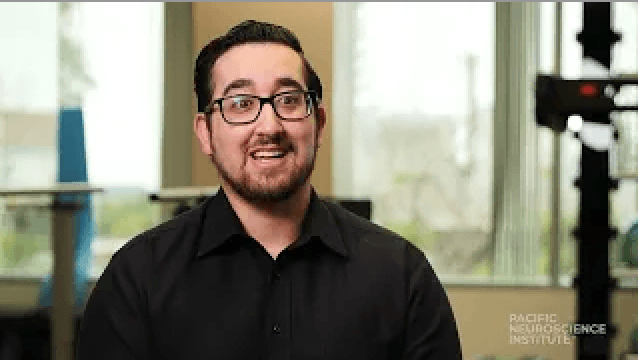

The Whole Story about Chemo Brain and Cognitive Dysfunction
by PNI Experts
Cognitive Dysfunction In Cancer Is More Than “Chemobrain”
By Marlon Saria, PhD, RN, and Santosh Kesari, MD, PhD
What is Chemo Brain?
The increasing number of individuals surviving a cancer diagnosis prompts a heightened interest in survivorship issues that include quality of life, performance status, and work reintegration after treatment. One of the most common concerns raised by cancer survivors is cognitive dysfunction, frequently referred to as “chemo brain”.
In the lay community, the use of the term chemo brain may have facilitated increased awareness of the issue, however, experts have suggested that the colloquial term does not represent the multiple processes involved and may trivialize the perceived impact on the cancer survivor.1
While chemotherapy is the most obvious cause of cognitive dysfunction in individuals with cancer, it is not the only cancer-treatment-related factor that has been implicated. It is important to know the multiple mechanisms that contribute to cognitive dysfunction to understand the recommendations provided by the experts on preventing and treating this side effect that lingers long after the patient has completed cancer treatment.
Broader View of Cancer-related Cognitive Dysfunction
Cancer-related cognitive dysfunction has been reported in as many as 75 percent of individuals receiving cancer treatment. For many, the symptoms will be subtle and short-lived, however, 15 to 35 percent may experience persistent memory deficits well beyond the active treatment phase.2 While the deficits associated with cancer-related cognitive dysfunction are mild, are more annoying than incapacitating, and often undiagnosed, the experience of chemo brain symptoms is real and significant for cancer survivors.1
For younger cancer survivors who potentially have many productive years ahead of them, cognitive deficits can have a profound impact on their pursuit of employment or academic goals and their overall quality of life. Symptoms of cancer-related cognitive dysfunction can be found across the range of cognitive domains, including short-term memory, concentration, attention, and planning.3 These symptoms are described as loss of short-term memory, difficulty in thinking, inability to concentrate, and impaired multi-tasking2.
Fortunately, syndromes that may suggest a more serious underlying condition, such as inability to understand or express speech, inability to recognize things, and inability to perform tasks or movement, do not occur with cancer-related cognitive dysfunction, nor does it interfere with reasoning and problem-solving, or affect talent and old memories.2
Why Does Chemo Brain Occur?
Experts have offered many explanations as to why cancer-related cognitive dysfunction occurs. One of the most obvious reasons is that medications used in cancer treatment, in particular, those that cross the blood–brain barrier, cause direct damage to neurons and other brain cells.
- Radiation therapy has been reported to induce cognitive dysfunction through functional and structural effects on the brain.3
- Surgery and anesthesia have also been linked to cancer-related cognitive dysfunction, with evidence pointing to inflammatory and immune responses as the mechanism behind the changes.4
- Genetic predisposition has also been implicated as certain genes have been found to play a role in the cognitive decline of individuals receiving chemotherapy.5
In addition to causal relationships between treatment-related risk factors and cognitive dysfunction, patient-related risk factors have also been reported to have an effect on cognition and memory.
- A higher risk of cancer-related cognitive dysfunction has been documented in individuals who have baseline cognitive impairment prior to receiving systemic therapy.4
- Likewise, mood disorders (e.g., anxiety and depression) have been associated with subjective and objective measures of cognitive function.4
- Finally, endocrine factors, including the use of hormonal therapy and menopausal symptoms, have been linked to higher rates of cancer-related cognitive dysfunction.4
Can Chemo Brain be Prevented?
Pharmaceutical Interventions
Unfortunately, effective medical interventions to prevent or treat cancer-related cognitive dysfunction remain elusive. Reducing the risk by eliminating the agent(s) that may cause cognitive impairment precludes the delivery of a potentially life-saving therapy. Most of the drugs, dietary supplements, and cognitive training strategies that may reduce the burden of cognitive impairment are still under investigation and a few have been deemed ineffective and are not recommended for practice. The use of growth factors has not been shown to prevent or treat cognitive dysfunction and have raised concerns about possible increased tumor growth, decreased survival time, and cardiovascular side effects.6
There are no medications approved for the prevention and treatment of cancer-related cognitive dysfunction.6 Neurostimulants, drugs that affect mental processes, are being investigated as agents that may reduce the impact of cancer treatment on cognitive function. Methylphenidate (Aptensio XR®, Concerta®, Ritalin® LA), a drug approved for attention deficit disorder, and modafinil (Provigil), approved for treatment of narcolepsy, have not shown sufficient evidence of effectiveness to be approved for use in cancer-related cognitive dysfunction.2 However, these are commonly used in practice and some patients appear to have dramatic benefit.
Antioxidants have also been studied in individuals affected by cancer-related cognitive dysfunction. High doses of vitamin E were shown to improve executive function, verbal memory, and visual memory, however, concerns about safety have been raised with the use of doses exceeding the recommended daily allowance.2 Ginkgo biloba, a popular herbal medicine used for multiple conditions, has not been shown to be effective and can even increase the risk for a more serious adverse event, bleeding.6
There are many other agents under investigation, including donepezil (Aricept), a drug used to treat dementia caused by Alzheimer’s disease; lithium, a drug used in patients with bipolar mood disorder; rosiglitazone (Avandia) and pioglitazone (Actos), drugs used as oral hypoglycemic agents for those with type-2 diabetes; memantine (Namenda XR®), used in the treatment of Alzheimer’s disease; and sertraline (Zoloft®), an antidepressant.3,6 More research is needed.
How Long Does Chemo Brain Usually Last?
Chemo brain, characterized by memory issues and brain fog, can last for varying periods.
Duration Insights:
- During Treatment: Symptoms often start and persist throughout chemo.
- Post-Treatment: For some, brain fog improves within a few months after completing chemo.
- Long-Term Effects: In certain cases, memory problems may continue for years, though they often gradually improve.
Non-Pharmaceutical Interventions
Non-pharmacologic interventions may not have the same toxicities and adverse reactions reported in drug-based interventions, however, they are just as ineffective or their effectiveness has not been established. With the exception of cognitive rehabilitation, which often involves mental training focused on improving attention, concentration, and memory skills, most of these interventions lack evidence to support their efficacy in treating cancer-related cognitive dysfunction.2,6
Brain Wellness & Lifestyle Interventions
Physical exercise is an area that is gaining a lot of momentum in cognitive research. There is increasing evidence that supports aerobic, resistance, and mindfulness-based exercise as interventions for cancer-related cognitive dysfunction.2 The benefits derived from exercise can be explained by reduced inflammatory markers, as well as an increase in neurotrophic factors essential in the growth and survival of brain cells and its impact on fatigue and sleep.2 Pacific Neuroscience Institute’s Brain Wellness & Lifestyle programs help address these types of interventions. In addition, evidence continues to build in support of electroencephalography biofeedback, an intervention that involves a real-time display of the brain’s electrical activity.2
Strategies to Deal with Chemo Brain
A more practical approach to managing cancer-related cognitive dysfunction has been demonstrated by individuals who are learning to cope with cognitive impairment using preemptive strategies such as scheduling academic- or employment-related activities in the morning and writing reminder notes instead of relying on memory. In addition, it would be logical to address issues that may aggravate the symptoms of cancer-related cognitive dysfunction, which include anxiety, depression, fatigue, and lack of sleep.4 It is also important to review all the medications that the individual is taking for any effect on cognitive function.
Key Tips:
- Stay Organized: Use planners or apps to track appointments and tasks and aid memory.
- Practice Mindfulness: Techniques like meditation can improve focus, minimize brain fog, and reduce stress.
- Healthy Habits: Regular exercise, a balanced diet, and sufficient sleep support brain function and clear thinking.
- Mental Exercises: Engage in puzzles or reading to stimulate your mind.
Keeping Treatment Goals in Mind
The data are clear, cancer-related cognitive dysfunction is real. They also suggest that cognitive dysfunction observed in a subset of patients receiving treatment for cancer is often mild and reversible. It is, therefore, important to consider the goals of cancer treatment when making important treatment decisions. The fear of acquiring cancer-related cognitive dysfunction should not dissuade individuals from receiving potentially beneficial cancer treatment, particularly if the goal of treatment is to cure or control the disease.7 For individuals who will face this long-term effect of cancer treatment, providers need to personalize future treatments to minimize its impact on their quality of life.
Is Chemo Brain Reversible?
Chemo brain, marked by memory issues and brain fog, is often reversible.
Recovery Insights:
- Gradual Improvement: Many patients notice symptoms improving after chemo ends.
- Full Reversal: For some, memory and cognitive functions return to normal within months.
- Persistent Symptoms: In rare cases, brain fog may linger longer but often lessens over time.
Engage in mental exercises and healthy lifestyle choices to aid recovery. Regularly discuss your symptoms with your healthcare team to monitor progress and adjust strategies as needed. With time and care, many patients experience significant improvement in their cognitive functions.
References
- Player L, Mackenzie L, Willis K, Loh SY. Women’s experiences of cognitive changes or ‘chemobrain’ following treatment for breast cancer: a role for occupational therapy? Aust Occup Ther J. 2014;61(4):230-240.
- Asher A, Myers JS. The effect of cancer treatment on cognitive function. Clin Adv Hematol Oncol. 2015;13(7):441-450.
- Davis J, Ahlberg FM, Berk M, Ashley DM, Khasraw M. Emerging pharmacotherapy for cancer patients with cognitive dysfunction. BMC Neurol. 2013;13:153.
- Moore HC. An overview of chemotherapy related cognitive dysfunction, or ‘chemobrain’. Oncology (Williston Park). 2014;28(9):797-804.
- Armstrong K. Chemobrain: Physiological Predisposing Factors. MEDSURG Nursing. 2016;25(4):215-223.
- Von Ah D, Jansen CE, Allen DH. Evidence based interventions for cancer and treatment-related cognitive impairment. Clin J OncolNurs. 2014;18 Suppl:17-25.
- Ganz PA. “Doctor, will the treatment you are recommending cause chemobrain?”. J ClinOncol. 2012;30(3):229-231.
Adapted from Original article published on CancerConnect, July 2017
About the Authors

Marlon Garzo Saria, PhD, RN, is an advanced practice registered nurse serving in multiple roles ranging from direct clinical care to program development and management. His program of research is grounded on two overlapping themes- the effect of cancer- and cancer-related toxicities on patient outcomes and the impact of caregiver burden on caregiver well-being outcomes, patient health outcomes, and healthcare utilization outcomes. Dr. Saria serves in the U.S. Air Force Reserve as a flight commander in the aerospace medical squadron. He was inducted as a Fellow of the American Academy of Nursing in 2014.

Santosh Kesari, MD, PhD, is Director of Neuro-oncology at Pacific Neuroscience Institute, Providence Saint John’s Health Center and Providence Little Company of Mary Medical Center Torrance, and leads the Pacific Neuroscience Research Center at Pacific Neuroscience Institute. He is Chair and Professor, Department of Translational Neurosciences, Saint John’s Cancer Institute and was named regional medical director of Providence Southern California’s Research Clinical Institute in April 2021. As a world-renowned neuro-oncologist and neurologist, Dr. Kesari’s focus is on the molecular and genetic cause of cancer and other severe diseases and its treatment using precision medicine techniques.
Useful Links
- Neuro-oncology
- Pacific Brain Tumor Center
- Brain Wellness & Lifestyle program
- Pacific Brain Health Center
- Cognitive brain health diagnostic workup
- Radiation and Radiosurgery
Neuro-Oncology Clinic Locations
Providence Saint John’s Health Cancer Center
2121 Santa Monica Blvd. “Garden Level” Santa Monica, CA 90404
310-829-8265
Providence Little Company of Mary Torrance
5215 Torrance Blvd, 3rd Floor, Torrance, CA 90503
424-212-5361
Pacific Neuroscience Institute
2125 Arizona Ave, Santa Monica, CA 90404
310-582-7600
St Jude Medical Center/ Specialty Clinic
2151 N. Harbor Blvd, # 3100 Fullerton, CA 92835
714-446-5830
St Joseph Hospital Multi-Disciplinary Care
1000 W. La Veta Ave, Orange, CA 92868
714-734-6294
Leonard Cancer Institute
27799 Medical Center Rd, Mission Viejo, CA 92691
310-582-7600
Providence Saint Joseph’s Medical Center
181 S. Buena Vista St, Burbank, CA 91505
818-748-4999
Videos Related to ChemoBrain
About the Author
PNI Experts
Last updated: October 9th, 2024











